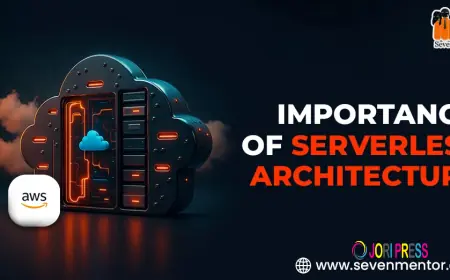Digital Marketing: The Ultimate Guide to Online Growth in 2025
Discover the power of Digital Marketing in 2025. Learn strategies, tools, and trends to boost online visibility, engage customers, and grow your business.

The business landscape has shifted dramatically in the last decade, with the internet becoming the central hub for commerce, communication, and connection. In this digital-first era, Digital Marketing has emerged as the most powerful way for brands, businesses, and individuals to reach their audience. From social media campaigns to data-driven advertising, digital marketing helps organizations promote their products, engage customers, and drive sales like never before. Whether you’re a small business owner or part of a global enterprise, understanding digital marketing is no longer optional, it's essential.
What is Digital Marketing?
Digital Marketing refers to all marketing efforts that use the internet or digital devices to connect with current and potential customers artificially intelligent. Unlike traditional marketing methods (billboards, print ads, TV commercials), digital marketing leverages platforms like search engines, websites, social media, email, and mobile apps to promote products and services.
Why Digital Marketing is Important in 2025
The relevance of digital marketing has grown exponentially, and here’s why:
-
Global Online Presence: Over 5 billion people worldwide use the internet daily.
-
Cost-Effective: Digital ads are cheaper and more targeted than traditional marketing.
-
Measurable: Businesses can track ROI, clicks, conversions, and engagement instantly.
-
Personalized: Data allows for hyper-personalized campaigns based on user behavior.
-
Competitive Edge: Brands that fail to adopt digital strategies risk falling behind competitors.
Core Components of Digital Marketing
Search Engine Optimization (SEO)
SEO is the process of optimizing websites to rank higher in search engine results pages (SERPs). It helps businesses attract organic (unpaid) traffic by focusing on keywords, backlinks, and technical optimizations.
Example: A local bakery optimizing for “best cupcakes near me” to appear on Google’s first page.
Content Marketing
Content is the backbone of digital marketing. Blogs, videos, infographics, and podcasts attract, engage, and inform audiences.
Key benefits:
-
Builds brand authority
-
Improves SEO rankings
-
Provides long-term value
Example: A travel company posting guides on “Top 10 Destinations for 2025.”
Social Media Marketing
With billions of users on platforms like Facebook, Instagram, LinkedIn, and TikTok, social media has become a crucial marketing channel.
Goals include:
-
Increasing brand awareness
-
Engaging directly with customers
-
Driving website traffic and conversions
Example: Influencer partnerships or trending hashtag campaigns.
Pay-Per-Click Advertising (PPC)
PPC is a model where businesses pay only when someone clicks on their ad. Google Ads and Facebook Ads are two popular PPC platforms.
Advantages:
-
Fast results
-
Highly targeted audiences
-
Clear ROI tracking
Email Marketing
Email remains one of the most effective digital marketing strategies. Personalized newsletters, promotional campaigns, and automated emails nurture customer relationships.
Example: E-commerce brands sending abandoned cart reminders.
Affiliate Marketing
Affiliate marketing involves partnering with individuals or companies who promote your products in exchange for a commission on sales.
Example: Bloggers promoting fitness supplements with affiliate links.
Influencer Marketing
Brands collaborate with influencers who have a strong following in specific niches. Their endorsements create trust and boost conversions.
Example: A beauty brand working with Instagram makeup artists.
Mobile Marketing
With smartphones dominating internet usage, mobile-friendly marketing is vital. Tactics include SMS campaigns, in-app ads, and location-based targeting.
Analytics and Data-Driven Marketing
Tools like Google Analytics and HubSpot allow marketers to measure campaign effectiveness and refine strategies for better outcomes.
Benefits of Digital Marketing
Digital marketing offers significant advantages over traditional methods:
-
Cost Efficiency – Reach thousands of potential customers with minimal budget.
-
Global Reach – Expand to international markets easily.
-
Personalization – Deliver tailored experiences to each customer.
-
Measurable ROI – Track every click, impression, and conversion.
-
Real-Time Engagement – Interact instantly through social media, live chats, and ads.
-
Scalability – Start small and scale campaigns as needed.
Challenges in Digital Marketing
While digital marketing offers endless opportunities, businesses face some challenges:
-
Intense Competition Almost every business is online, making it harder to stand out.
-
Ad Fatigue Consumers often ignore repetitive or intrusive ads.
-
Constantly Changing Algorithms Platforms like Google and Instagram frequently update their algorithms.
-
Data Privacy Concerns Stricter regulations (like GDPR) require ethical handling of consumer data.
-
High Expectations Customers demand personalized, fast, and seamless experiences.
Future Trends in Digital Marketing (2025 and Beyond)
-
Artificial Intelligence in Marketing
AI-driven chatbots, predictive analytics, and automated content creation are becoming mainstream.
-
Voice Search Optimization
With smart assistants like Alexa and Google Home, optimizing for voice queries is essential.
-
Video and Short-Form Content
TikTok, Instagram Reels, and YouTube Shorts dominate engagement.
-
Personalization at Scale
Hyper-personalized product recommendations using machine learning.
-
Sustainability Marketing
Eco-conscious branding is gaining traction as consumers demand ethical practices.
-
Metaverse Marketing
Virtual reality (VR) and augmented reality (AR) experiences are becoming part of brand strategies.
-
Privacy-First Marketing
Marketers will need to balance personalization with consumer data protection.
Best Practices for Digital Marketing Success
-
Know Your Audience – Conduct thorough research to understand customer needs.
-
Use Multi-Channel Strategies – Combine SEO, social media, email, and paid ads.
-
Leverage Data – Base decisions on insights, not assumptions.
-
Optimize for Mobile – Ensure websites and campaigns are mobile-friendly.
-
Focus on Content Quality – High-value, authentic content wins trust.
-
Test and Refine – A/B test campaigns to continuously improve.
-
Stay Updated – Keep pace with industry trends and platform updates.
Conclusion
Digital Marketing has transformed from being an optional strategy to a business necessity. In 2025, with more people spending their time online than ever, companies that embrace digital strategies will have a competitive edge. From SEO and social media to AI-driven personalization, the tools of digital marketing are powerful, cost-effective, and measurable. However, success requires not just adopting digital strategies but also staying adaptable in a rapidly evolving landscape. The future of digital marketing lies in personalization, innovation, and trust-building—brands that master these will thrive in the digital economy.
What's Your Reaction?
 Like
0
Like
0
 Dislike
0
Dislike
0
 Love
0
Love
0
 Funny
0
Funny
0
 Angry
0
Angry
0
 Sad
0
Sad
0
 Wow
0
Wow
0

















































